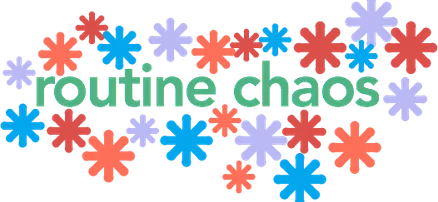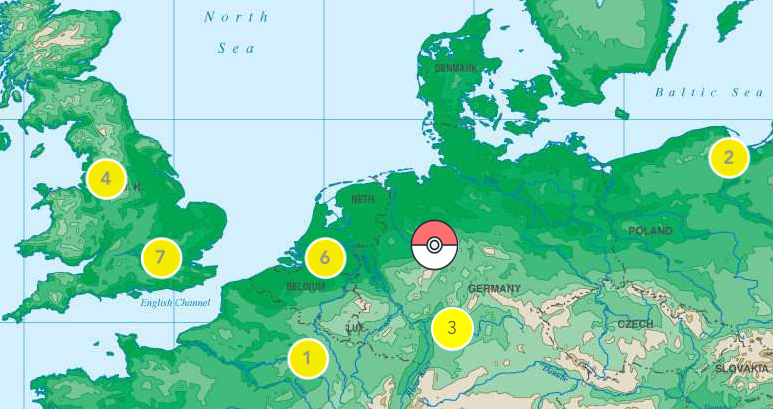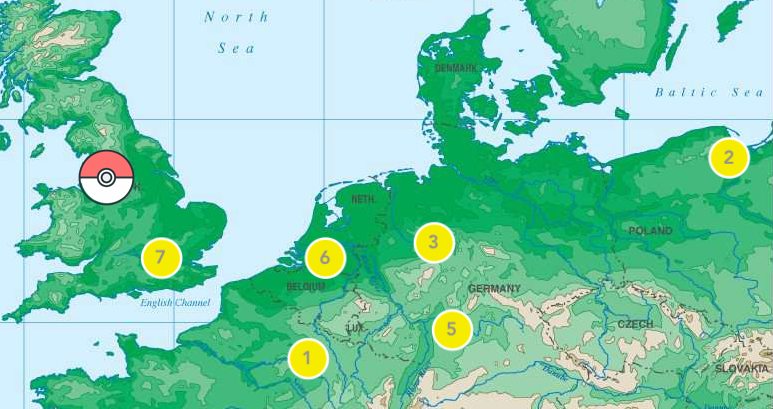What if the Pokemon Company took over traditional education?
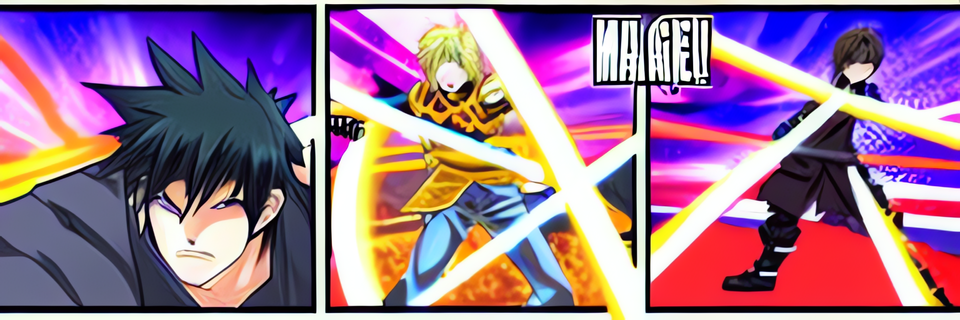
Full disclosure: I began writing this at the European International Pokemon Championship. This is absolutely a real thing, a thing that this year attracted nearly 2,000 competitors - including 2 of my own children - and countless more spectators including (obviously) me. This is our 6th Pokemon tournament of the past year, so I've been thinking about this for a few months now.
I was not a Pokemon fan as a child myself (I'm just a couple years too old), but I have become one through my children - reluctantly at first, and then with growing enthusiasm. I have seen my own children grow and develop through their involvement with Pokemon, which has helped me to identify some of these ways that the Pokemon Company would design education differently.
Just as a reminder, here's the basic premise of this thought experiment. So let's get into it...what would be meaningfully different if the Pokemon Company was in charge of our societal pursuit of education?
Maybe some background? (feel free to skip this section)
I'm not going to be exhaustive, because the Pokemon Company does a lot of things - they make TV shows and movies, they produce merchandise and do high end brand collaborations, etc. And I'm not going to give you a history lesson about it because Wikipedia has got you covered. Feel free Let's focus on their bread & butter: games and events related to those games.
What you may not know is that there are actually 5 different Pokemon games, each of which involves assembling a team of Pokemon for some form of battle.
- The two classics are the Pokemon card game aka TCG (build a 60 card deck, try to knock out 6 of your opponent's Pokemon before they knock out yours) and the Pokemon video game aka VGC (collect Pokemon in an open world, go into battle arenas and knock out 4 of your opponent's 6 Pokemon before they knock out yours).
- Probably the most popularly known and played is Pokemon Go aka PoGo (find Pokemon in the actual world using your mobile phone, go into virtual gyms, knock out 3 of your opponent's Pokemon before they knock out yours)
- And then there's the 2 copycat games: Pokken (like the fighting game Tekken, except 3v3 Pokemon) and Pokemon Unite (League of Legends, except with Pokemon), the former of which has been retired from official competition and the second of which seems like a pretty transparent attempt for Pokemon to make deeper inroads into e-sports. Copycats though they may be, they are still beloved.
Throughout the year, there is a series of in-person events in which players of these games come together to compete in order to qualify for the culminating event: the annual Pokemon World Championships. Pokemon has been going on for a long time, so this isn't just for kids - actually, most of the competitors at the events are adults.
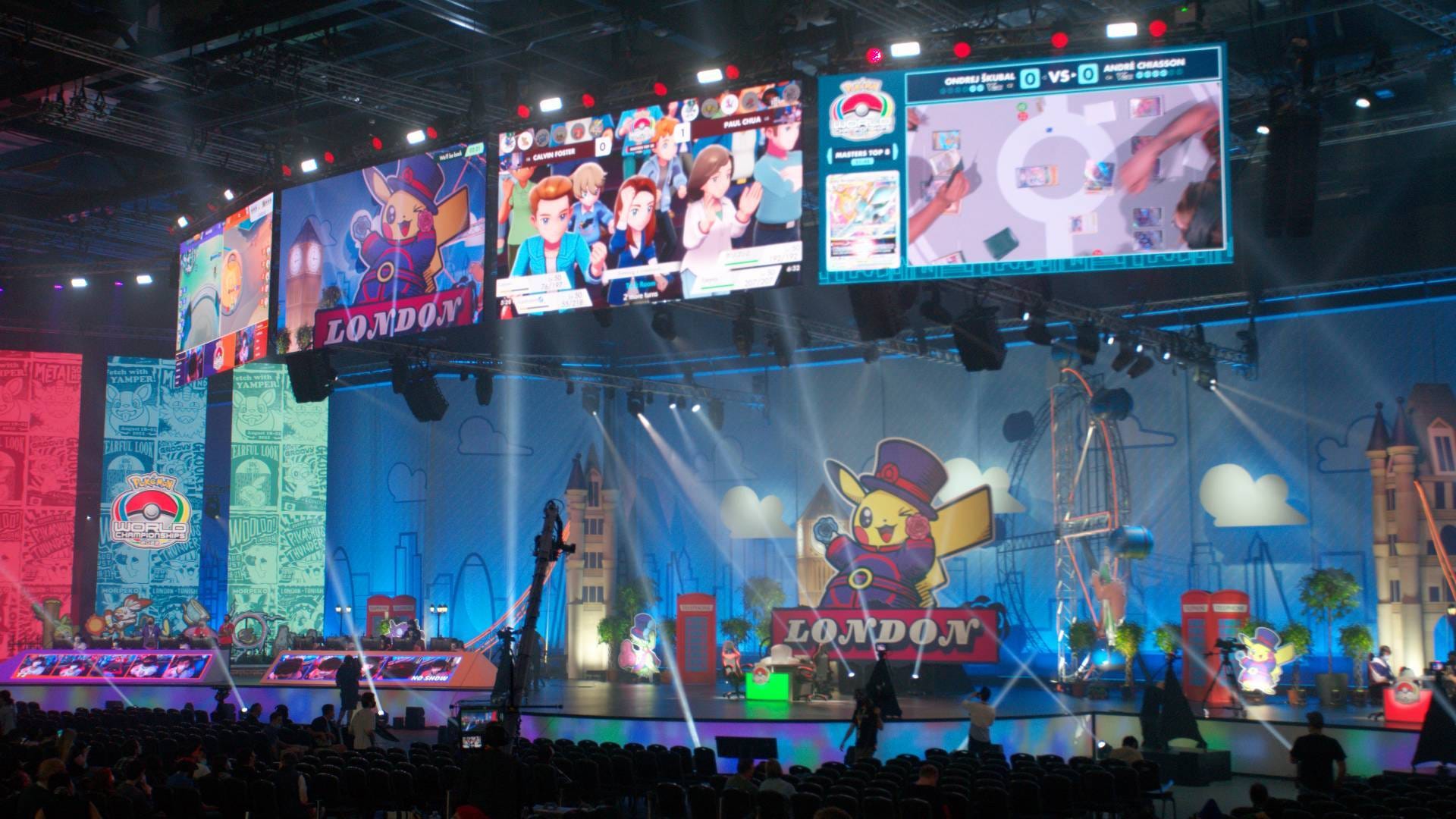
This is a cursory overview that has neglected much of the gameplay nuance. If you want more, follow those links.
Big Difference #1: Mixed Age Communities
If you're new to Pokemon, you probably think of it as a thing for children because that's originally all that it was. But those original kids grew up and quite a lot of them stuck with it, and the end result of that is a pretty broad spectrum of ages who are active in the Pokemon community - and all of that is without considering the mass culture phenomenon of Pokemon Go, about which you can draw any demographic group out of a hat and I can almost guarantee there are people in that group who Pogo (Buddhist monks, check; suburban moms, super check). This is the thing: you don't age out of Pokemon if you don't want to. There's also not a point where the door to entry is closed forever. You can start when you're 3, you can start when you're 43. And you stop when it isn't meaningful or interesting to you anymore.
The barrier to participation is, effectively, nonexistent. Anyone can show up and get involved, no matter how much preexisting knowledge or experience they have. And while there are more advanced and demanding ways of getting involves if you do have more experience, anyone can still engage meaningfully and deeply. But no one is gatekeeping or determining for you how you connect based on some demographic characteristic.
If you join one of the many side events that happen alongside the tournament, you'll be thrown into a small group of people of various ages and experience levels - sometimes in competitive play, sometimes in cooperative play. And every one of those people will be treated as a full member in good standing in the community. There is a tacit understanding that the Pokemon community is safe and welcoming, and the members of the community uphold that understanding.
Big Difference #2: ...Without An Age-Based Hierarchy
The complementary aspect of the mixed-age community that really unlocks the magic: there is no explicit hierarchy to the community. I'll get into a few different types of roles people are playing below, but none of them are privileged over the others, and even implicit positioning is based on expertise rather than age. For example, at the recent European Championships a kid under 10 won the championship with a "galaxy brain" tactic that surprised even the professional commentators broadcasting the match.
Kids are neither condescended nor pandered to; it's one of the rare places that I see kids and adults engaged in deep conversation as equals, because expertise mediates the interaction. They discuss strategy, compare different configurations, make trades, and comment on ongoing matches.
And while there is this expertise-based hierarchy, one of the ways that the community manifests its value of being welcoming is in the special deference shown to people attending their first event: it's the veterans who go out of their way to show them the ropes, and even the very best of the best are present in the crowd.
Big Difference #3: Multiple Modes of Participation
Aside from the different games - each of which creates a different avenue and context for participation - the world of Pokemon encourages diverse ways for people to plug into the world based on their interests and preferences. If you scan the crowd at a Pokemon tournament, you'll obviously see players and spectators participating in the competition. If you look just a little bit closer, you'll see the referees and a veritable army of volunteers who are making the tournament run. Many of these people are players themselves, but a lot of them are Pokemon parents who still want a way to stay connected to the community after their kids have flown the nest. Edge out to the periphery and you find even more groups:
- the collectors - this one should probably be unsurprising, given the Pokemon catchphrase is "gotta catch 'em all," but there's a group of people who aren't here to participate in the tournament at all. They're here to collect, to look for rare cards and unique merchandise. Yeah, sure, the internet lets them do all of that at their leisure...but the internet doesn't let you look through a fellow collector's binder of pristine, mint condition alt arts and first gens, and it doesn't get you the appreciative looks from the people looking through your own binders.
- the entrepreneurs - they're like the collector in that they have impressive collections and/or vast reserves. Unlike the collector, the entrepreneurs are here to wheel & deal and make some money. Yes, they're also on the internet, but there's a velocity and volume here that online doesn't hold a candle to. And there's a slight edge: the entrepreneurs have the best eyes for evaluating and pricing. They won't cheat you (word travels fast in the community if someone is taking advantage), but they can buy and sell at slightly better prices amidst the hype and energy
- the socialites - this is the group I find myself most fascinated by. They are at a Pokemon tournament, and they are playing Pokemon (usually the card game), but they aren't participating in the tournament itself. They're playing as a means of connection with others, they're making friends, playing for kicks not for glory. Yeah, some of them came with a friend who is having a better tournament so they have to stick around...but not most of them.
- the enthusiasts - not to be confused with spectators, these people aren't here to play or even to watch. They are here to be here, to flaunt their fandom, to take a photo with a person in a Pikachu costume. They know that it's a space where there's a critical mass of people who are into a thing that they are also into, so they're going all out for it. This is the group most likely to be in costume and/or bedecked in stuffed animals.

Big Difference #4: Design Around Peak Experiences
If you're thinking to yourself, "man, it sounds like these events have a vibe!" You are not wrong. The first tournament we ever went to was so much more than I was expecting and left an indelible mark on my kids: they are designed to be memorable experiences, FOMO machines for the folks who are watching the stream at home. In the weeks and months in between events, players are practicing at home, online, and in smaller leagues. They're honing their skills, refining their strategies, testing their mettle against others. Most of them show up for these big events knowing that they're not going to be the most competitive players, but that's not the point. Of course you'd love to win, but you have to be there. You've been anticipating it & planning for it because you know it's going to be something special.
What I have noticed in the year that we've been doing this is how these events function as crystallized moments in time where my children can step back and assess their own growth and progress - and I can see the change in them too.
Big DIfference #5: Kindness & Encouragement Reigns Supreme
Pokemon breaks most of my stereotypes about how competitive events work: it's serious without being cutthroat, people are invested without being insensitive. I don't think I've ever seen trash talking, disrespect, or unsportsmanlike conduct. In fact, I've seen so much of the opposite: players complimenting their opponents before playing, a defeated finalist sincerely embracing their opponent in congratulations, someone lamenting a bad beat being met with an authentic interest that ultimately leads to the question "but did you have fun?" It's not like you have to be gregarious, but you definitely can't be an asshole.
I remember thinking after the first tournament that when every person you encounter is kind and encouraging, that only happens by design. I can narrate what a couple of those designed elements are:
- it begins with the tournament staff & volunteers. Ostensibly, I'd imagine that they need to police this but I can only recall seeing that happen one time. Really, they model it. They are enthusiastic about the community, and they want everyone to have a great experience.
- there's also something in the format of the tournaments. This is one of those minor design decisions that has huge downstream effects: the tournament structure is Swiss-system, which means first that every competitor is guaranteed a certain number of matches, and second that competitors are usually playing someone at a similar ability level. It means that the majority of the time, competitors are engaged with near peers and have a legitimate challenge. You're not going to beat up on lesser competition or engage in a futile pursuit. You also don't have the spectre of elimination hanging over every move you make. All of these factors lend themselves more toward an air of civility.
Of course, there's also the cumulative benefit of a long-term virtuous cycle. I bet there was a time when these values had to be more strictly stated and upheld, but over time the community adopts these norms and it becomes much more difficult for someone to violate them.
The Net Effect
Imagine showing up to a place of learning knowing that you'll be able to immediately dive deep into something that will be both challenging and enjoyable, that you'll be able to find a mode of interaction that makes sense for your interests and preferences, and that you'll be surrounded by a supportive community. Imagine further, that you can keep pushing into higher levels of challenge, and as you go deeper you have richer interactions with others and also open up opportunities to support other people who are working on something that you've become an expert in. Imagine that you periodically show up and your whole community has an intense, powerful experience that strengthens your sense of identity, exposes your skill level, and motivates you to go farther.
Would you want to show up to a place like that day after day? Would you be a better person if you did? Would your society be better if everyone did? The answer to these questions doesn't have to be a unanimous yes, but I think these are the critical questions when we think about what our systems for human development should look like. I don't want to get stuck in the question of "is it better than the existing system?" and move beyond that into what an incredible system could be. I’m curious what you think.
Laying my cards on the table...should we turn the enterprise of education over to the Pokemon Company? Probably not. Should our education systems look more like a Pokemon tournament? I'd be open to it.
